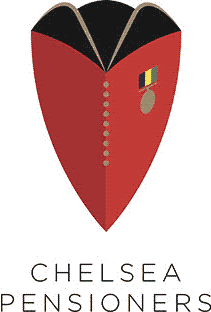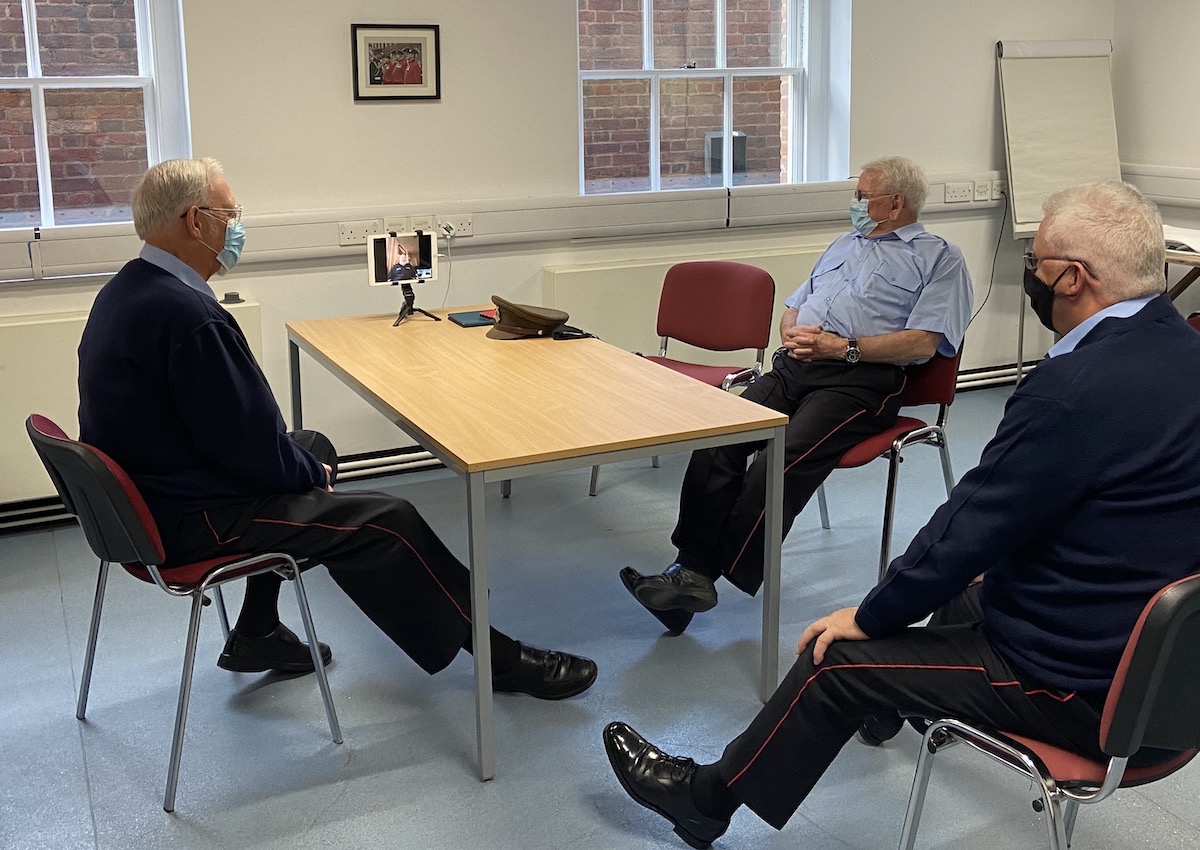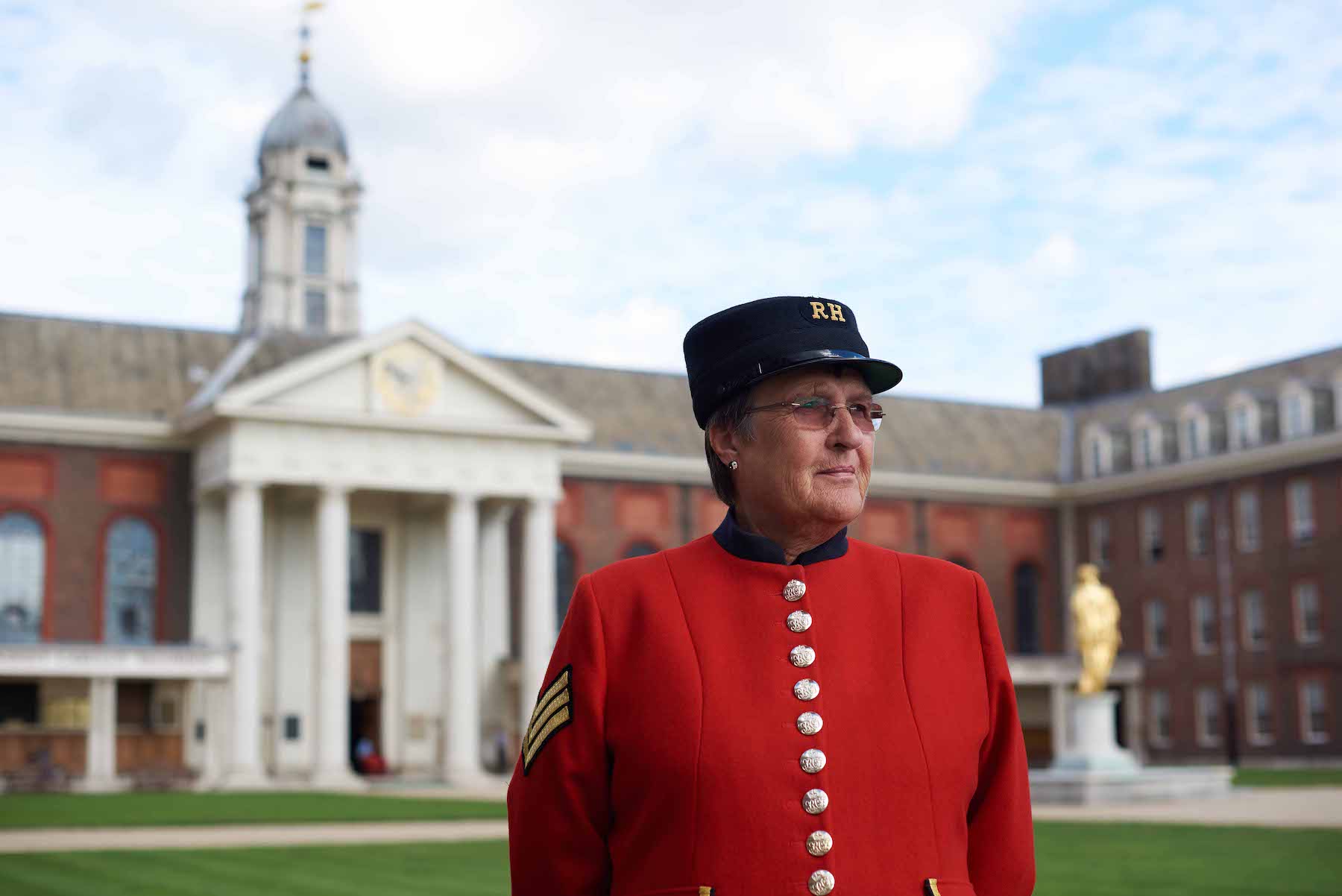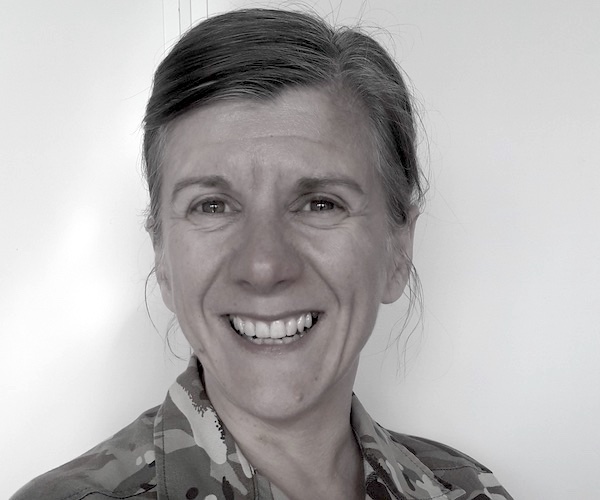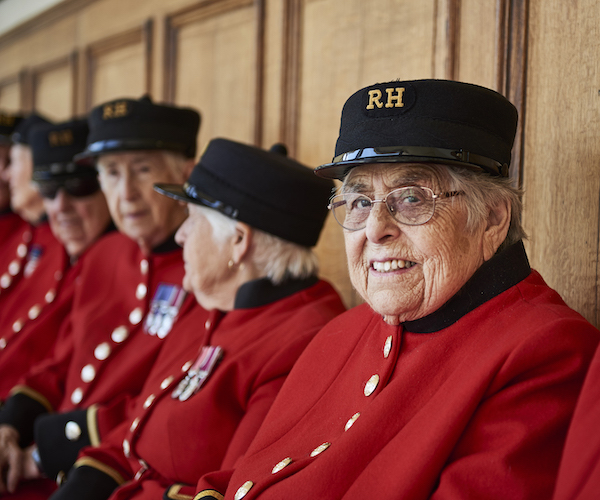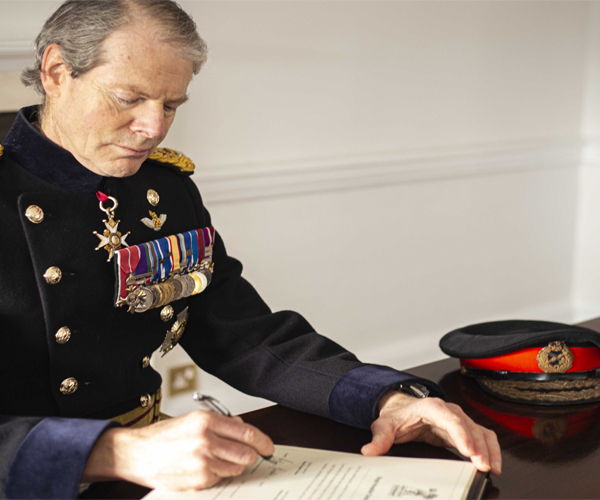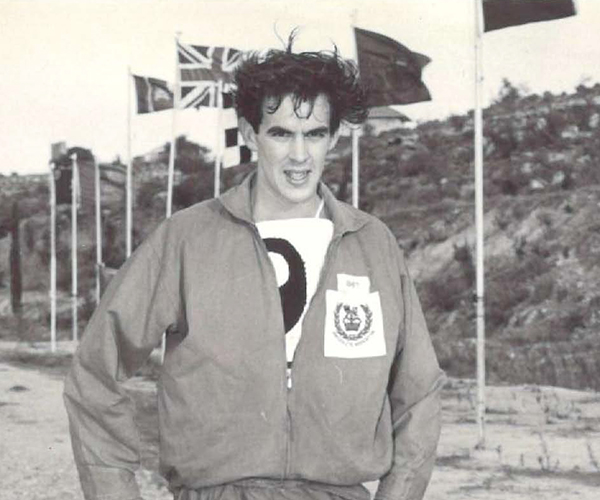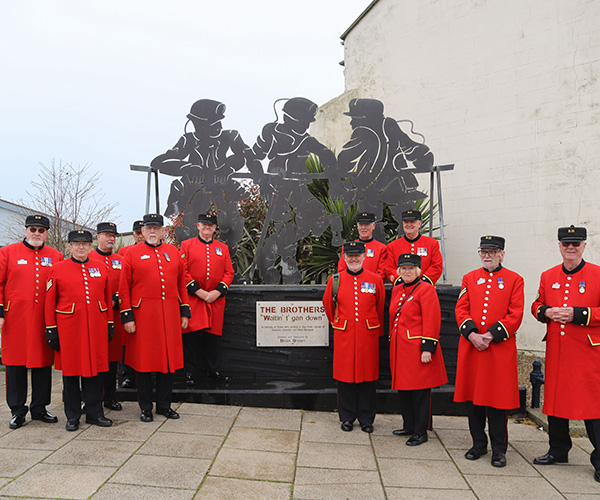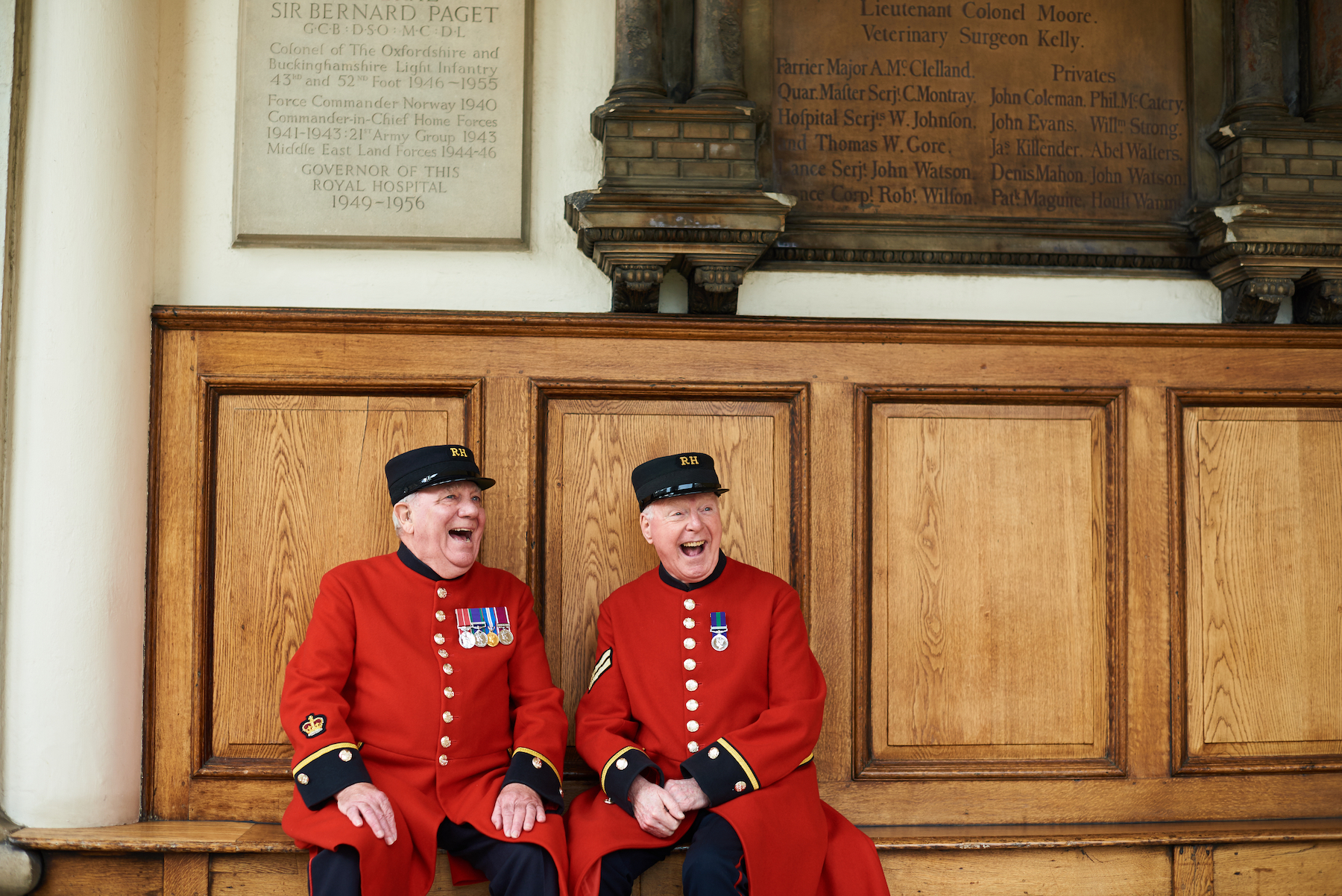
Fighting loneliness in later life
22nd March 2021
Fighting loneliness in later life
In a world where social isolation is rife, the Royal Hospital community is not only ensuring the Chelsea Pensioners are not at risk of loneliness, we’re doing our best to extend the benefits of our way of life to as many veterans as possible.
There are 1.4 million chronically lonely older people in the UK, according to Age UK. As partners and friends die, families scatter and communities fragment, older people become starved of human companionship.
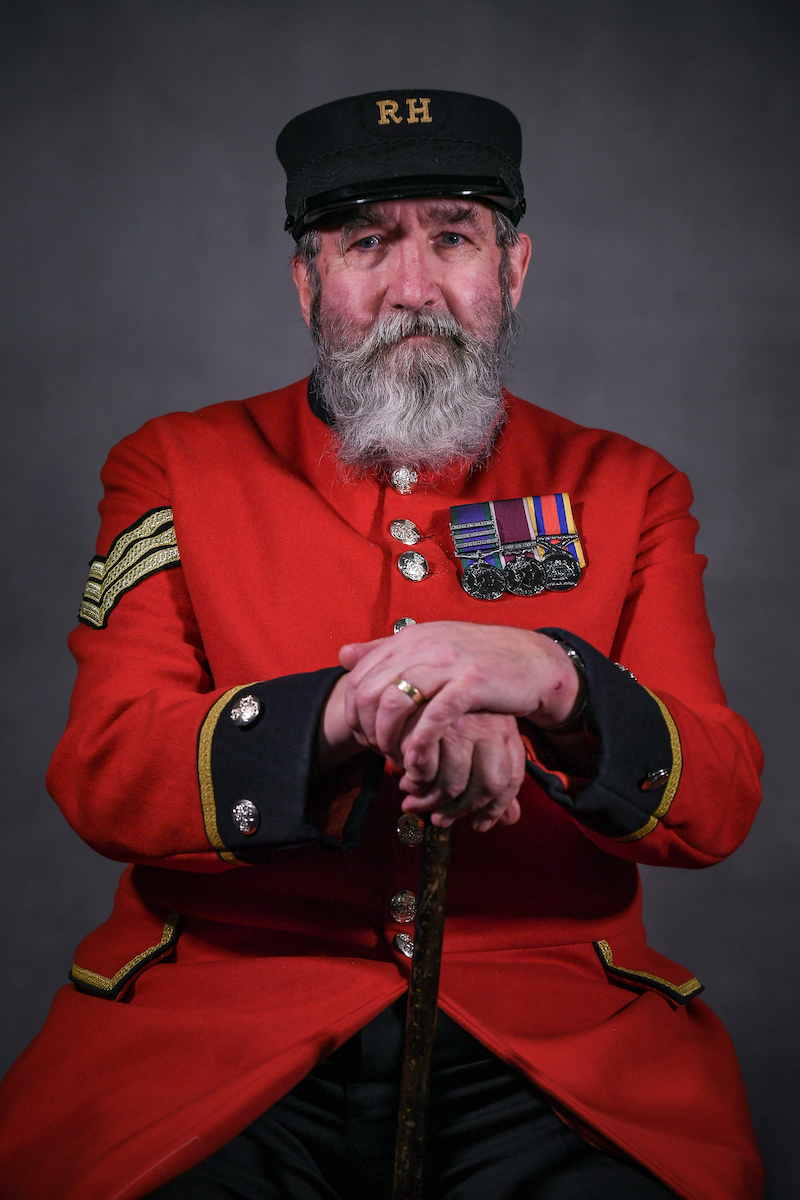
“On my last day, I handed in my ID card and all the paperwork. I walked out in civvies, crossed the road, turned around, looked back and thought: ‘I can’t go back in’. It’s a huge shock to suddenly realise you’re no longer part of this family.”
A sense of belonging
When Mike became a Chelsea Pensioner, he found a family again. For former soldiers facing the prospect of lonely, disconnected lives, just moving into the Royal Hospital makes a huge difference, says Social Care Manager Jo Molendo:
“There’s lots going on and we encourage engagement. When people come in, they generally seem happier and more content. They say they feel a sense of reassurance, they have less to worry about.”
The site itself helps too, according to Royal Hospital GP Fergus Keating:
“Wren’s inspired design of the ‘long wards’ [where Pensioners live] encourages social mixing. The shared facilities for meals and socialising, the structure into ‘companies’ and the common bonds and values of a shared military past give a sense of belonging.”
In addition to the many activities and social events on site, volunteer ‘befrienders’ engage with anyone who might be at risk of loneliness. Pensioners also look out for each other – accompanying fellow Pensioners to appointments and keeping an eye out for anyone who might need extra support. Even those with dementia can maintain a degree of independence that wouldn’t be possible elsewhere, Jo Molendo says:
“Here, everyone knows them and has their best interests at heart. A dedicated worker helps them with activities and they can still go to the café, chat with a friend, go to bingo and live a rich, enjoyable life.”
Welcoming prospective Pensioners
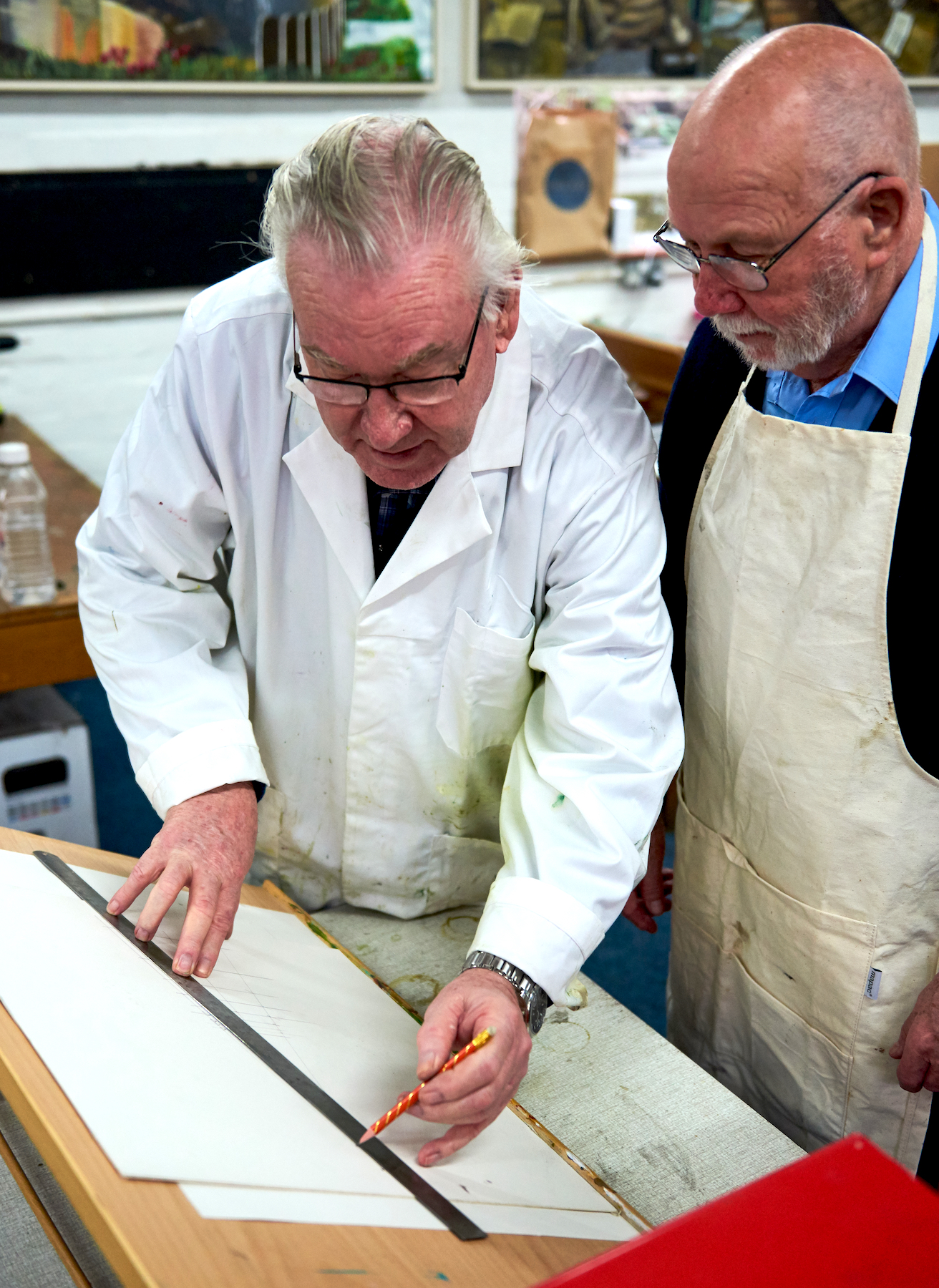
“We’ll take them to their berth, settle them in and explain how things work. I would introduce them to others, walk around with them and show them the place, and take them to their first appointment.”
During the course of his duties, Mike noticed how lonely some of the veterans were:
“Some of them are quite direct and will say, ‘It’s bloody awful at home. I’ve got nobody to talk to, no friends – nothing now my wife’s gone’. Others don’t like to admit that – in their eyes – they’re failing. Then I’ll engage them in conversation and be very open with them.
I spoke to one veteran who was living in the Union Jack Club and was almost suicidal. They pulled him straight in. It was the right thing to do and he really paid it back. He was always at events and was a great favourite.”
Many are leading very lonely lives when they arrive. When one veteran came for his four-day stay, the Matron asked him what he’d been doing during the previous week. His answer remains clear in her mind:
“It was raining on Thursday and I watched the raindrops go down the window”, he told her.
A chat to a Chelsea Pensioner makes all the difference

“I kept getting calls, mostly they were asking questions, but you could tell they were quite lonely and wanted a chat as well. They were sat at home waiting, and some of them don’t have any family and are isolated at home. I felt they needed a bit more support, so I suggested setting up some phone calls with the Pensioners who are usually mentors. They were all on board with the idea, so we gave them guidance and information on safeguarding and confidentiality and now I ask all applicants if they’d like to chat to a Chelsea Pensioner. Most of them say yes.”
Mike thinks the scheme is brilliant, as otherwise the veterans would be sitting at home, leading lonely lives.
“One told me, ‘I get no visitors at all’. I spoke to him for about 55 minutes and plan to call him and the others I’m looking after at least once a week. They’ve been away from the military life for a long time and the phone calls bring them back in. I talk to them about all sorts of things. I might talk about the laundry system – it seems mundane, but for them it’s interesting and reassuring. “
Keeping connected during Covid
The befriending phone calls are just one of the ways that the Royal Hospital is keeping connections alive during lockdown.
Chelsea Pensioners have been supported to talk to friends and family on video calls, volunteers who usually come in for a chat have been picking up the phone and other initiatives – like the Veterans’ Breakfast Club – have adapted to the times. Chelsea Pensioners now have regular online conversations with members of BLESMA – the charity for limbless veterans – which have been a great success, as one participant former Grenadier Guard Robin Smithers, explains:
“We got on brilliantly. It was refreshing to go back into that old military mentality”.
Chelsea Pensioner Dave is equally enthusiastic about the benefits:
“One of the reasons I’m here is to put something back into the community of veterans. We all sometimes feel a bit isolated, so connecting via a call is a great idea. It was nice sharing what it’s like being at the Royal Hospital too. It’s a brilliant place for an ex-serviceman when he’s left on his own. It’s the best thing I ever did.”
Reaching out to the wider veteran community
“I phone up veterans from outside and talk to them. Chelsea Pensioners can assist with what regimental associations are doing and we can open up our facilities more to the veteran community. There are lots of veterans out there and we need to give them support.”
The new Activities Centre and Visitors’ Centre that are currently taking shape won’t just bring benefits to Chelsea Pensioners of all abilities, they’re taking the needs of the wider veteran community into account. There are plans to include them in activities and groups, to set up a drop-in centre and to connect them with other veterans, as well as to Chelsea Pensioners. At the same time, connections between isolated veterans and Chelsea Pensioners will be fostered online and veterans who are carers – or carers who look after veterans – will also be supported.
Monica, a Chelsea Pensioner who feels the Royal Hospital saved her from an isolated existence, is very positive about the proposals:
“A large number of veterans are alone, lonely, desperately in need and they need to be part of something. That is genuinely coming from my heart. I was there myself for a while when my life collapsed on me. I needed something and fortunately I found it here. But there are all those people out there who are not finding it and they would be so delighted that somebody cared enough. They’d have that connection with other military people – it would give them a new lease of life.”
Please note some photos used in this article were taken prior to COVID restrictions.
